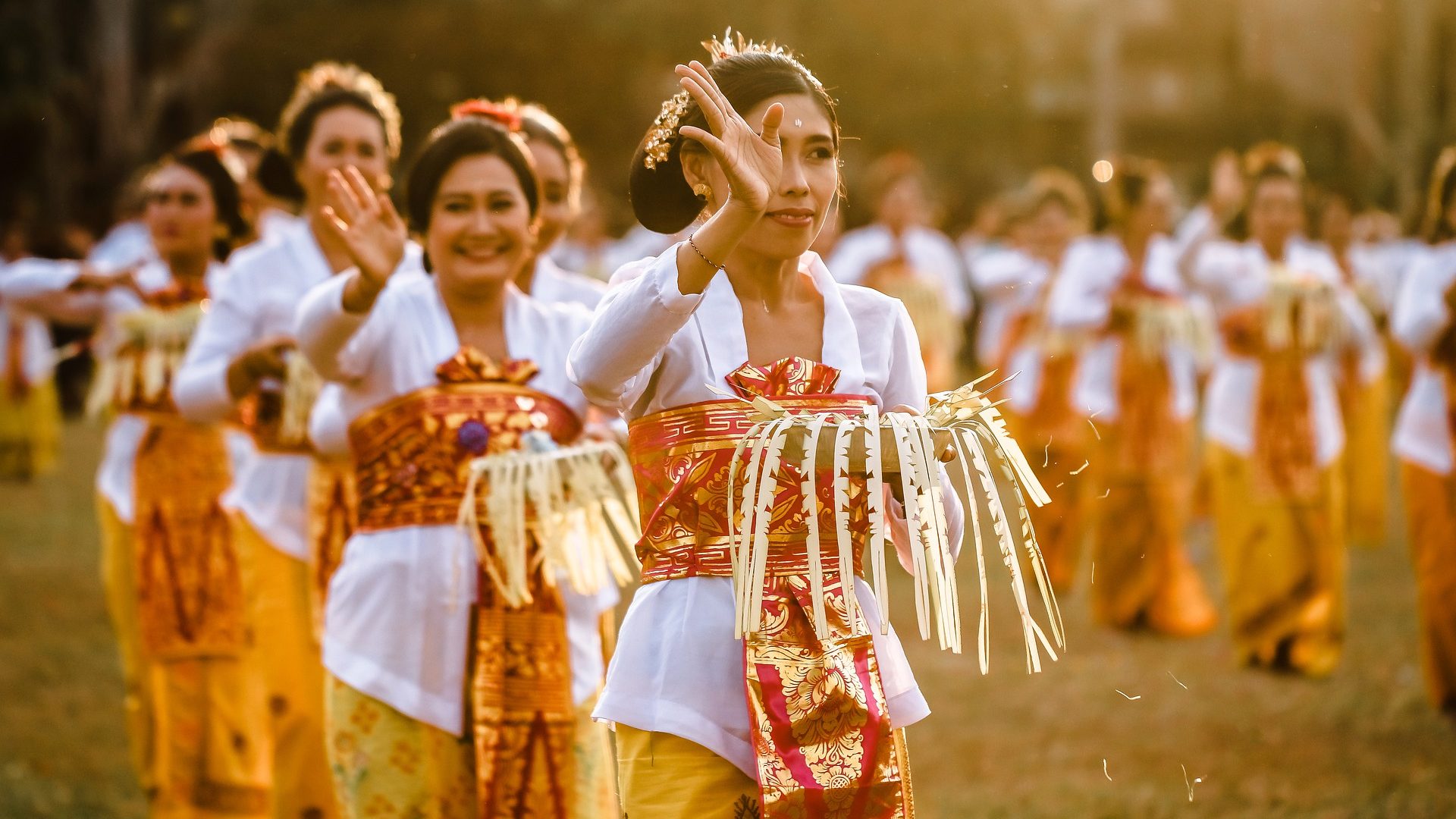Bali, a beautiful island in Indonesia, is renowned for its unique and rich cultural heritage. Understanding the basics of Balinese culture can enhance your experience and interactions while visiting the island. Here are some key things to know about Bali’s culture:
1. Religion: The predominant religion in Bali is Balinese Hinduism, which is a distinct form of Hinduism influenced by local beliefs and animism. Temples and religious ceremonies are an integral part of Balinese life.
2. Temples and Rituals: Bali is often called the “Island of a Thousand Temples” due to the numerous temples found all over the island. Rituals and ceremonies are conducted regularly, and you might witness colorful processions and offerings being made to the gods.
3. Offerings: Balinese people are known for their devotion and daily offerings called “canang sari.” These small palm-leaf baskets are filled with flowers, rice, and other symbolic items, placed in front of homes, businesses, and temples as an expression of gratitude and to appease spirits.
4. Gamelan Music and Dance: Balinese music and dance are vibrant and captivating. The traditional ensemble called “gamelan” consists of various percussion instruments, creating mesmerizing rhythms for dance performances.
5. Kecak Fire Dance: The Kecak dance is one of the most famous traditional performances in Bali. It involves a large group of men chanting “cak-cak-cak” in a repetitive pattern, reenacting stories from the Hindu epics.
6. Barong Dance: Another significant dance performance is the Barong dance, portraying the fight between good (Barong, a mythical lion-like creature) and evil (Rangda, a demon queen).
7. Social Structure: Balinese society adheres to a complex caste system, which influences social interactions and relationships. However, as a visitor, you are not expected to follow these social rules.
8. Art and Craftsmanship: Bali is known for its artistic traditions, including woodcarving, painting, batik, silverwork, and stone carving. Artisans create intricate and beautiful pieces that reflect Balinese mythology and daily life.
9. Family and Community: Family is of utmost importance in Balinese culture. People generally live in extended family compounds, and strong community bonds are emphasized.
10. Nyepi (Day of Silence): Nyepi is the Balinese New Year’s Day and a significant cultural event. It is a day of silence, fasting, and self-reflection, during which the whole island comes to a standstill.
11. Balinese Cuisine: Balinese cuisine is flavorful and diverse, with dishes like Babi Guling (suckling pig), Bebek Betutu (duck), and Nasi Goreng (fried rice) being popular choices.
12. Respect for Sacred Places: When visiting temples or other sacred sites, remember to dress modestly and behave respectfully. It’s customary to wear a sarong and sash when entering temples.
By appreciating and respecting Bali’s cultural traditions, you can create a more meaningful and enjoyable experience while visiting this enchanting island. Keep in mind that customs and practices might vary in different regions of Bali, so it’s always beneficial to be observant and open to learning during your stay.
If you need a Bali visa agent, get in touch with Bali Legals to discuss your requirements.
Please follow our Facebook page and Instagram account for all the latest news and information.
See our Google Reviews.

